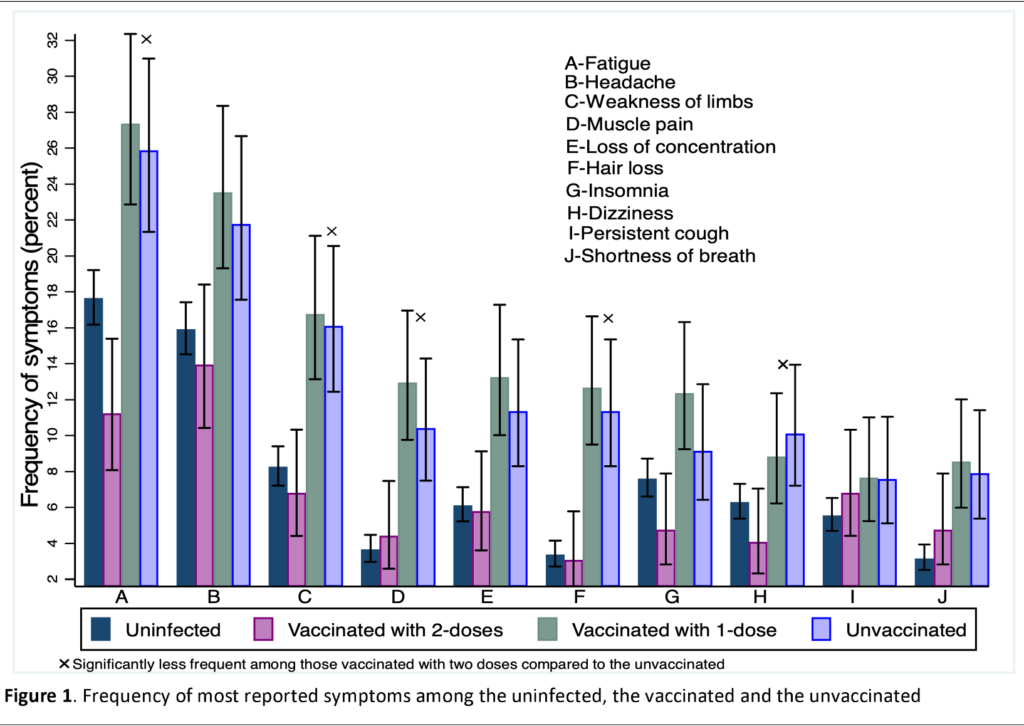A: 🎱 Signs point to yes.
TL;DR: In a new study, vaccinated people infected with SARS-CoV-2 had the same risk of reporting Long Covid symptoms as *uninfected* people. That is SOME GOOD NEWS!!
With Omicron infections piling up even among the vaccinated, we know many are worried about the prospect of Long Covid. Even with Omicron, the vaccines (especially 3 doses) do reduce your chance of being infected at all—so no infection, no Long Covid.
But even if you’ve gotten that dreaded positive test after vaccination, there is cause to be hopeful.
A recent study from Israel analyzed data on people who had tested positive via PCR for SARS-CoV-2 between March 2020 and November 2021.
People were asked to report the symptoms from their acute infection as well as current symptoms. The most commonly reported Long Covid symptoms reported were; fatigue, headache, weakness, and persistent muscle pain.
In the figure below, you can see that those with 2 doses of vaccine reported a similar (or lower) prevalence of symptoms compared to *uninfected* people.

Nerdy aside: This is great example of the need for a control group in scientific analysis. There will always be a certain amount of fatigue and headaches reported in the population with or without COVID-19 (though we wish it weren’t so!). In the vaccine trials, a sizeable % of those in the placebo group also reported side effects like headache and fatigue. These control groups tell us what symptoms we can expect as a baseline, so that we can test whether those rates are elevated in the vaccine group or not. For example in this study 14% of vaccinated people later infected report current headaches, but so did 16% of the uninfected.
In this case, *unvaccinated* people who are infected had a much higher chance of most symptoms than the vaccinated+infected or the uninfected (see figure above).
Interestingly, the prevalence of symptoms for those vaccinated with one dose and infected was similar to the unvaccinated. While this may be due to only having one dose, it could also be because this group was largely infected *prior* to vaccination—during this time in Israel those with prior infection were recommended to get only one dose of vaccine.
While this study was in adults, the prospect of reducing the risk of Long Covid is another good argument for vaccinating children and teens even though their risk of severe disease is low. There is also growing evidence that getting vaccinated can help resolve existing Long Covid symptoms (see links below).
Since this is one study, it’s not the final word, but it is hopeful. Data on Long Covid is still scarce, as well as agreement on how to measure it. We’ll keep reporting back as more data accumulates.
Until then, Stay Safe and Stay Sane!
Love,
Those Nerdy Girls
Previous post on vaccines and Long Covid
Israeli study described in post
Evidence on vaccines helping to resolve previous Long Covid:
Thread from immunologist Dr. Akiko Iwasaki
3 doses still provide protection against infection with Omicron


